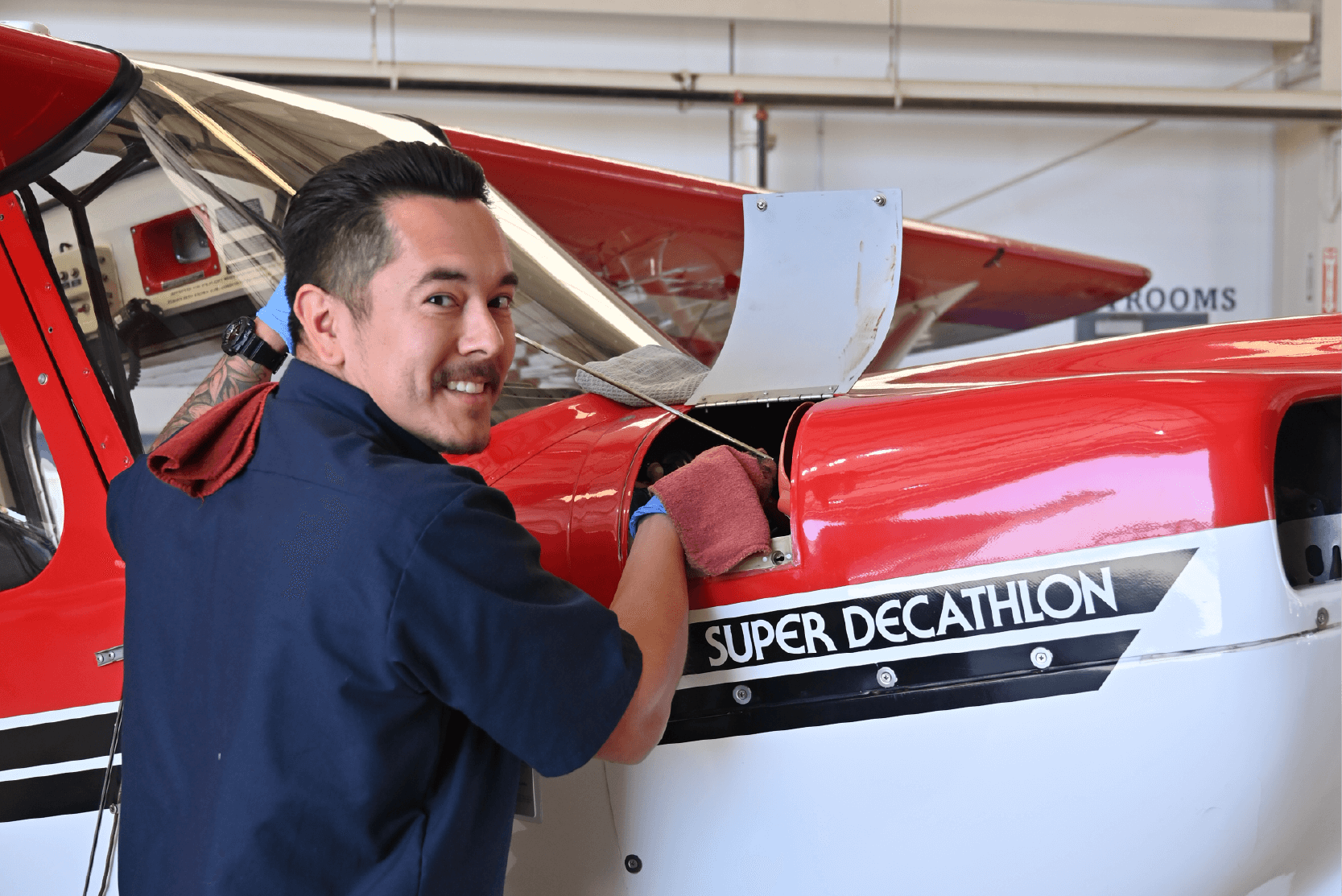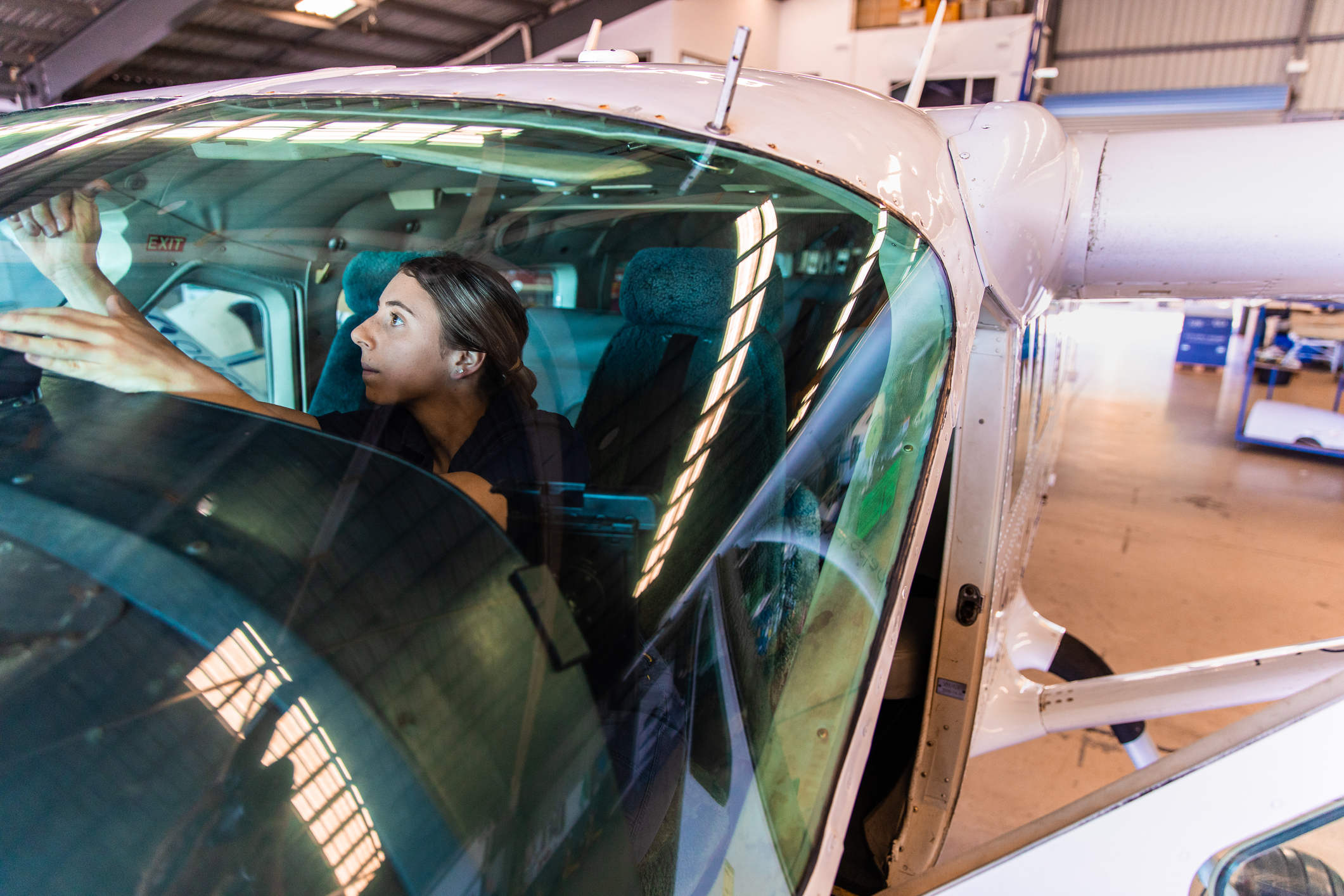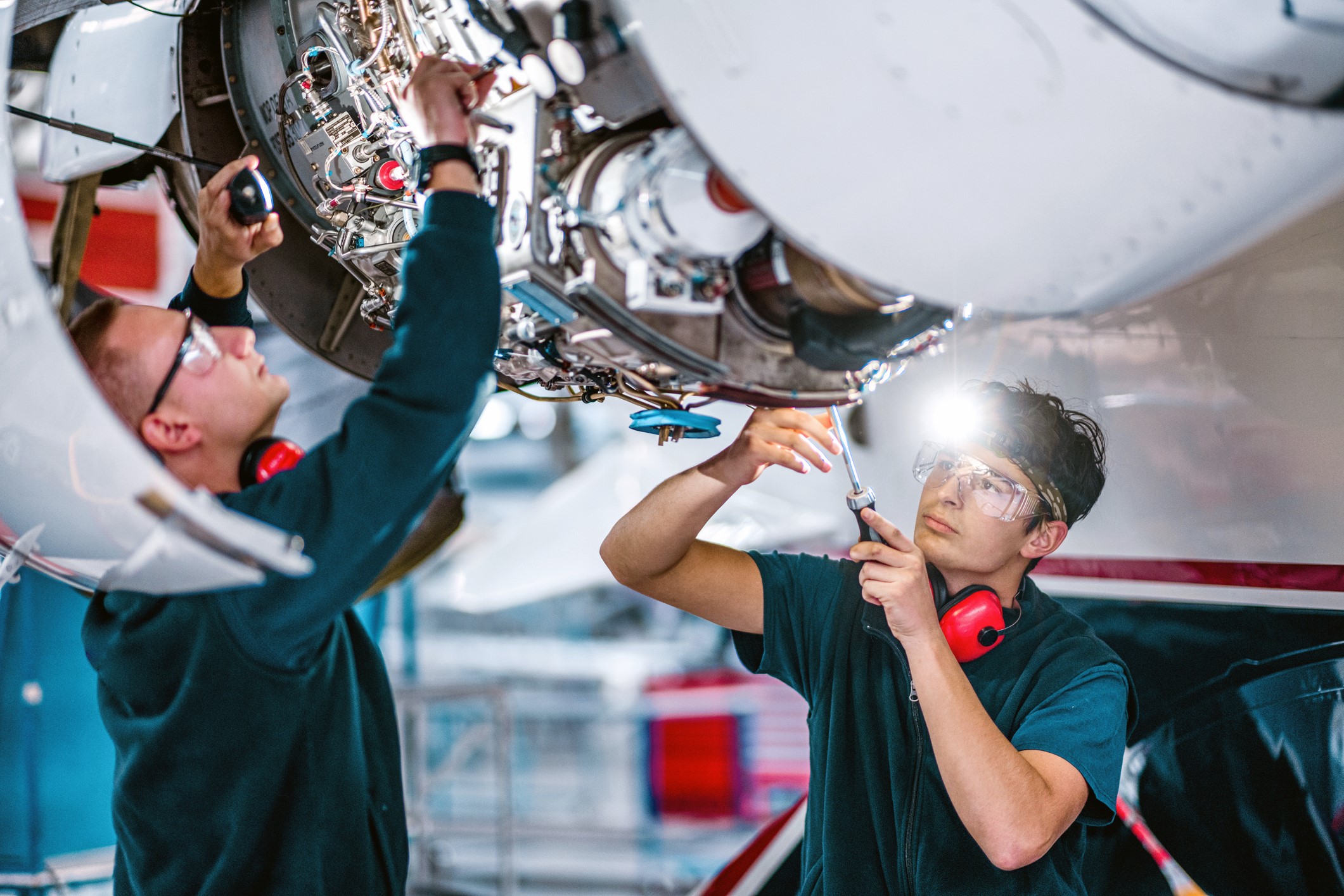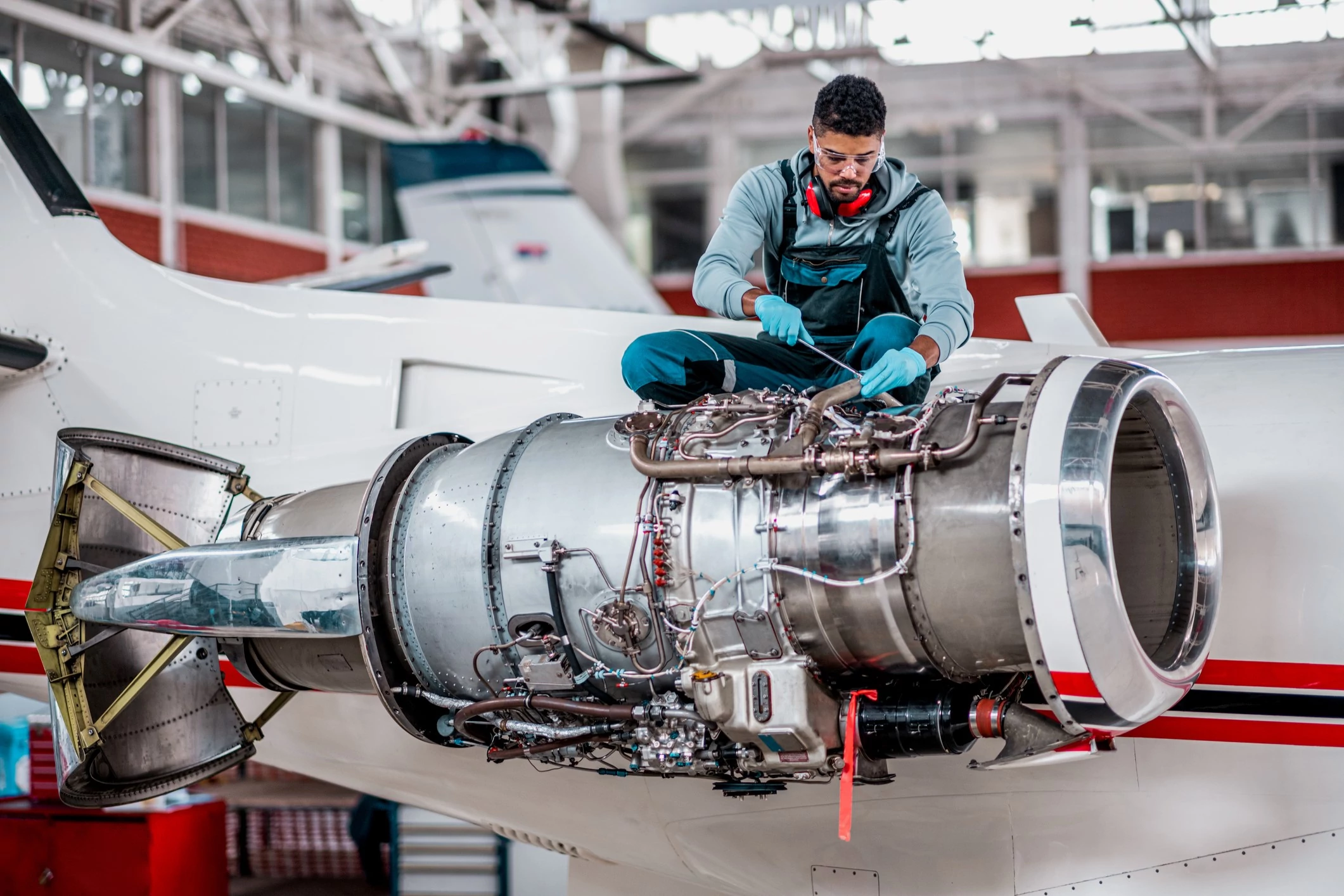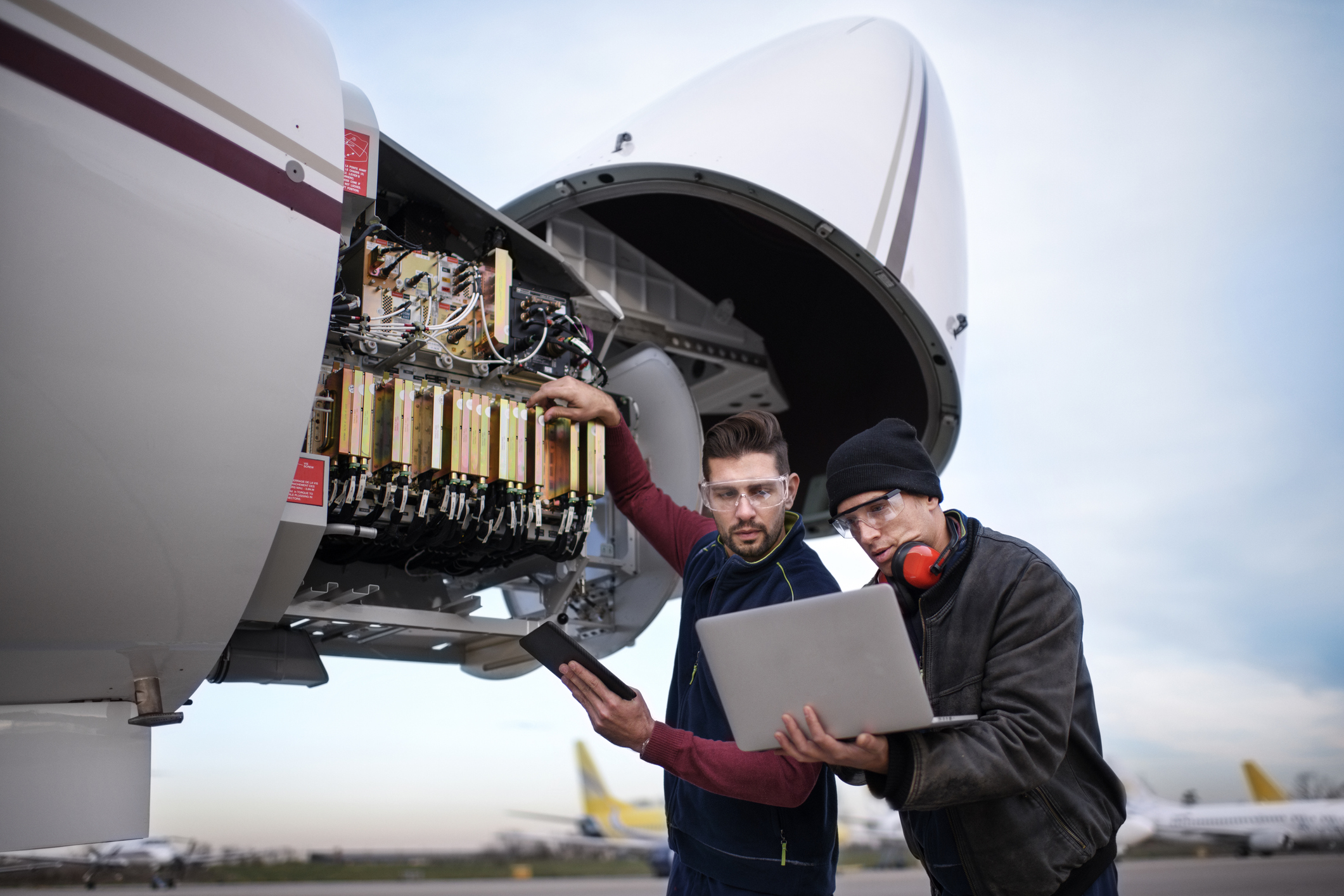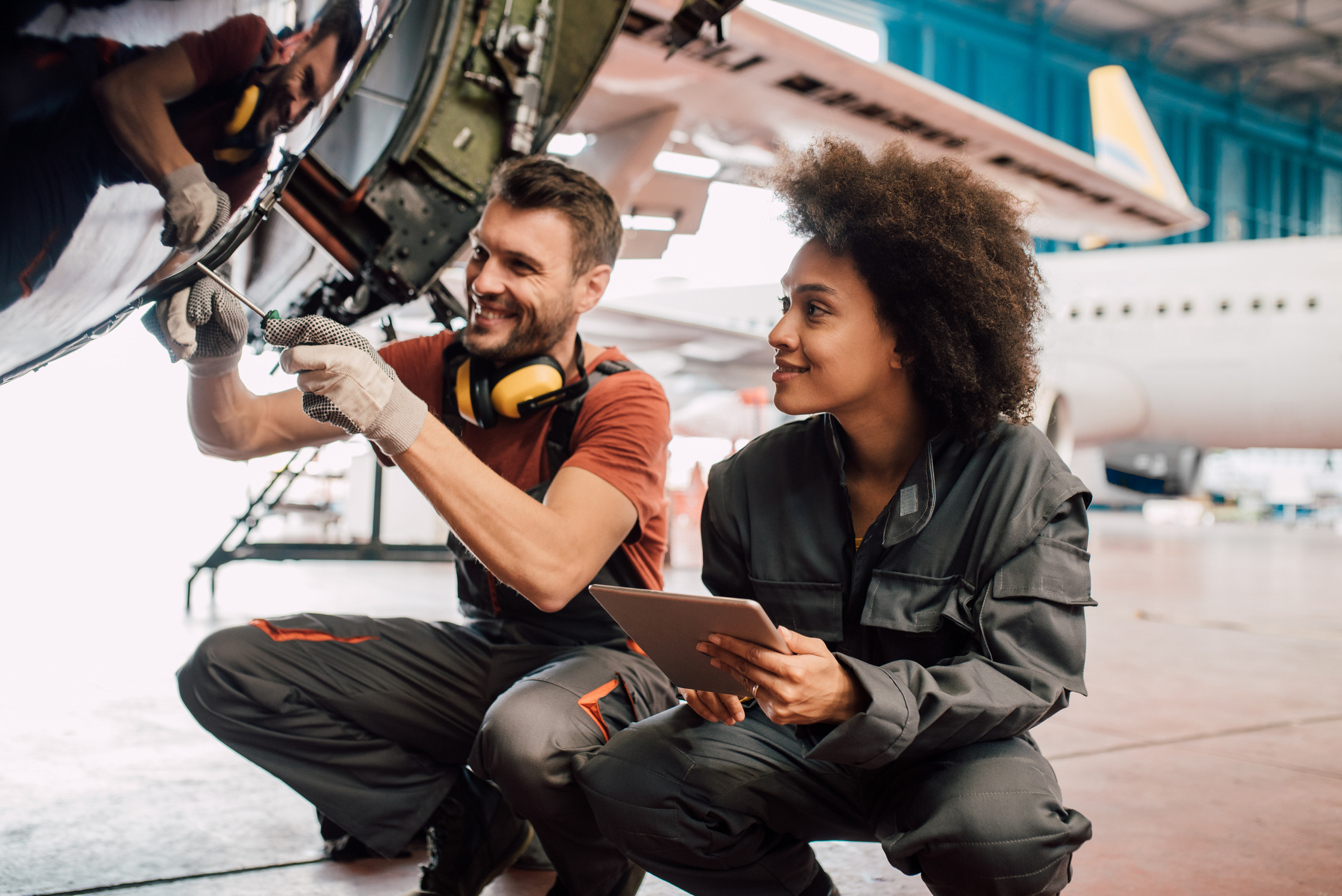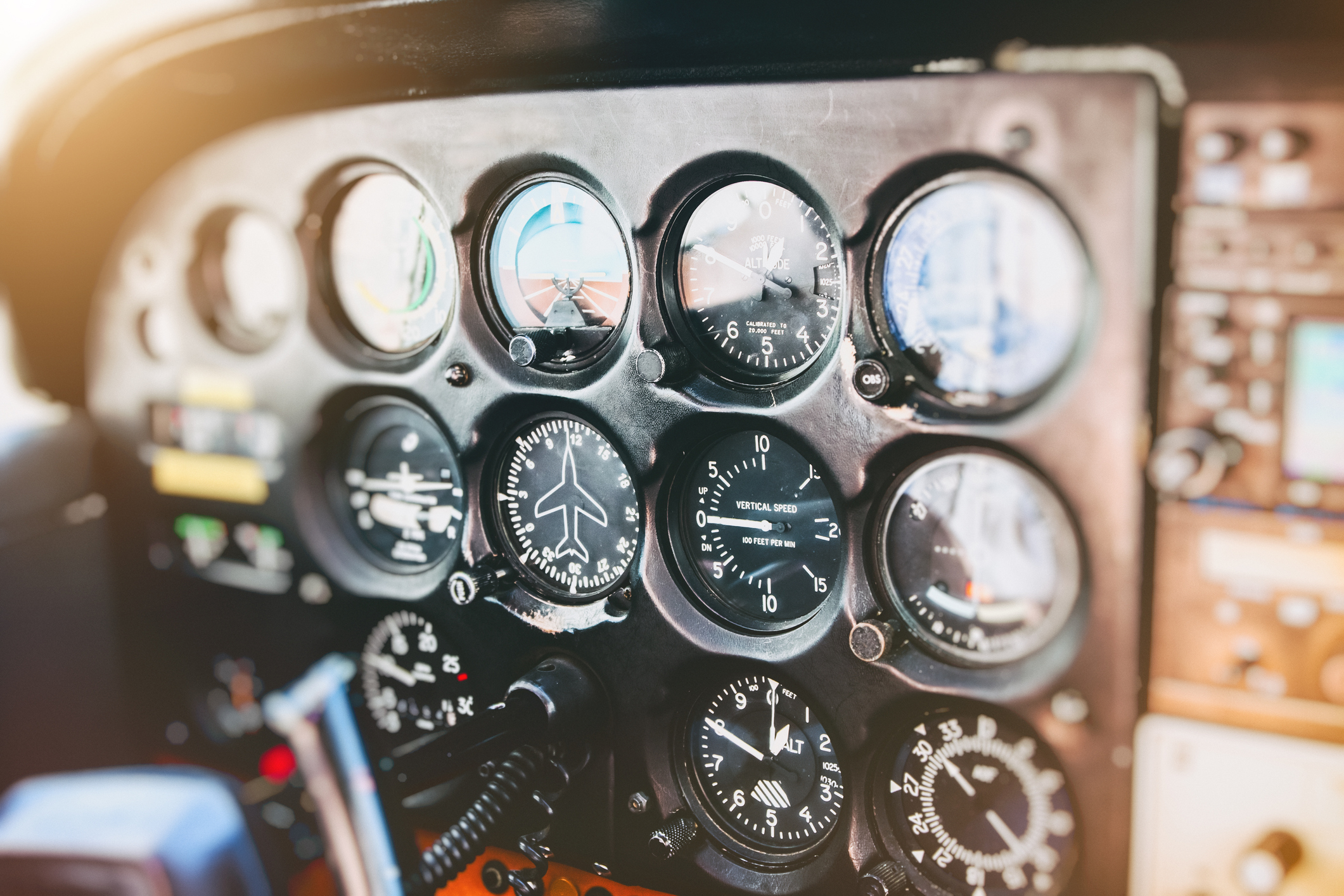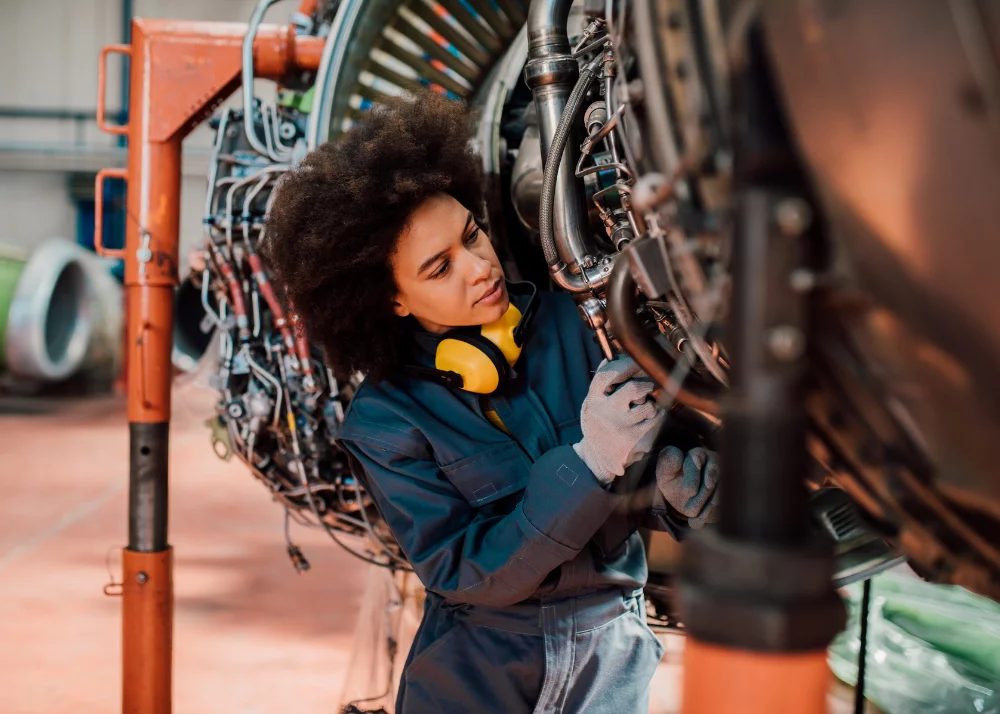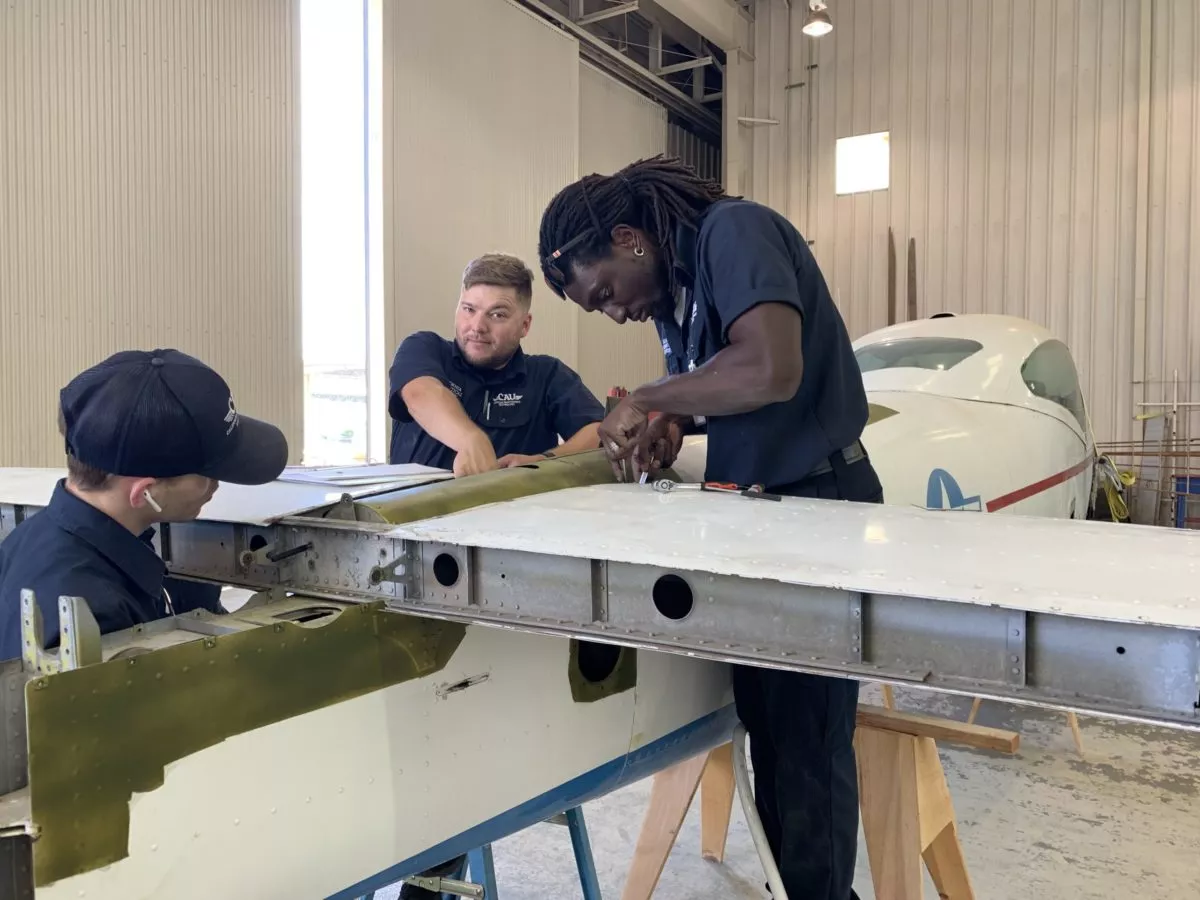Aircraft mechanics play a crucial role in the aviation industry, ensuring the safety and functionality of airplanes. This guide will walk you through the journey to becoming an aircraft mechanic, from the early stages of career exploration to professional advancement. With dedication and the right steps, you can build a fulfilling career in this vital field.
 1. Early Stages: Self-Discovery and Career Selection
1. Early Stages: Self-Discovery and Career Selection
Understand the Role of an Aircraft Mechanic
Aircraft mechanics are responsible for inspecting, maintaining, and repairing aircraft to ensure they meet safety standards. They work on various systems, including engines, hydraulics, avionics, and structural components. Their attention to detail and adherence to safety protocols directly impacts passenger and crew safety. As a result, this career demands precision, dedication, and a passion for problem-solving.
Assess Your Interests and Skills
Before embarking on this career path, take some time to evaluate your aptitudes and preferences. Key traits that align with being an aircraft mechanic include:
- Technical Aptitude: Do you enjoy working with your hands and solving mechanical problems?
- Attention to Detail: Are you meticulous in following procedures and identifying issues?
- Passion for Aviation: Does the aviation field excite you?
- Teamwork Skills: Are you comfortable collaborating with others in a high-stakes environment?
Research Career Paths
There are multiple specializations within aircraft mechanics to explore. Understanding these can help you identify the area that aligns best with your interests:
- Airframe Mechanics: Focus on the aircraft’s structure, including wings, fuselage, and landing gear.
- Powerplant Mechanics: Specialize in engine maintenance and repair, including turbine and reciprocating engines.
- Avionics Technicians: Work on electronic systems such as navigation, communication, and flight controls.
Speak to Professionals
Engage with individuals already working in the field. Attend career fairs, participate in informational interviews, or join aviation interest groups. This firsthand insight will give you a clearer understanding of the day-to-day realities of the job.
Prepare Academically
Strengthen your foundation in essential subjects such as math, physics, and engineering. These areas are critical for understanding the mechanical and technical aspects of aircraft maintenance.
 2. Career Development: Education and Certification
2. Career Development: Education and Certification
Educational Pathways
To become an aircraft mechanic, you need the proper education and training. There are several pathways to consider:
- FAA-Approved Training Programs: Enroll in a Federal Aviation Administration (FAA)-certified Aviation Maintenance Technician School (AMTS). These programs provide comprehensive training and typically last 18-24 months.
- Associate Degrees: Some institutions offer associate degree programs in aviation maintenance technology, combining technical training with general education courses.
- Military Training: Serving in the military as an aviation mechanic can provide valuable experience and often fulfills FAA requirements.
Certification Requirements
FAA certification is a mandatory step for working as an aircraft mechanic in the United States. The main certifications include:
- Airframe Certification: Focuses on the structural aspects of an aircraft.
- Powerplant Certification: Covers engine maintenance and repair.
- Combination (A&P) Certification: Allows you to work on both airframes and powerplants, making you more versatile and marketable.
Steps to Obtain Certification:
- Complete an FAA-approved program or gain at least 30 months of practical experience working on airframes and powerplants.
- Pass three tests: a written exam, an oral exam, and a practical test to demonstrate your skills.
Gaining Practical Experience
Hands-on experience is invaluable in this field. Many training programs include internships or cooperative education opportunities with airlines, repair stations, or manufacturers. These experiences provide real-world exposure and help build your confidence.
 3. Career Advancement
3. Career Advancement
Build Expertise
After earning your initial certification and gaining experience, consider specializing in advanced systems or specific aircraft types. Areas of specialization might include:
- Composite Materials: Working with advanced lightweight materials used in modern aircraft.
- Advanced Avionics: Maintaining and repairing cutting-edge electronic systems.
Pursue Additional Certifications
Additional certifications can broaden your career opportunities. For example:
- Inspection Authorization (IA): Enables you to perform inspections and sign off on major repairs.
- Type-Specific Certifications: These allow you to work on particular aircraft models, often required by manufacturers or airlines.
Stay Updated
The aviation industry is constantly evolving, with new technologies and regulations emerging regularly. To stay ahead, you can:
- Attend industry conferences and trade shows.
- Participate in workshops and continuing education courses.
- Subscribe to aviation maintenance publications and online forums.
Networking and Professional Associations
Networking is an essential part of professional growth. Joining organizations like the Aircraft Mechanics Fraternal Association (AMFA) or the Professional Aviation Maintenance Association (PAMA) can provide access to:
- Job boards and career resources.
- Networking events with industry professionals.
- Advocacy and support for industry-specific issues.
Explore Leadership Roles
As you gain experience, you may wish to transition into leadership roles such as:
- Maintenance Supervisor: Overseeing a team of mechanics.
- Quality Assurance Inspector: Ensuring compliance with safety and regulatory standards.
- Training Instructor: Educating and mentoring aspiring mechanics.
Opportunities Beyond Maintenance
Your skills as an aircraft mechanic can open doors to related fields, including:
- Aircraft Manufacturing: Assisting in the design and assembly of aircraft.
- Aviation Safety: Conducting safety audits and investigations.
- Consulting: Providing expert advice to airlines, manufacturers, or regulatory bodies.
 4. Additional Tips for Success
4. Additional Tips for Success
Develop Soft Skills
While technical expertise is critical, soft skills also play a significant role in your career. Key skills to cultivate include:
- Communication: Clearly explain technical issues and solutions to colleagues and clients.
- Time Management: Handle multiple tasks efficiently while meeting strict deadlines.
- Problem-Solving: Think critically to diagnose and resolve complex issues.
Focus on Physical Fitness
Aircraft maintenance often requires physical labor, such as lifting heavy components or working in confined spaces. Maintaining good physical fitness will help you perform these tasks effectively and reduce the risk of injury.
Maintain a Strong Work Ethic
In this safety-critical industry, your reliability, diligence, and commitment to quality are paramount. Employers value mechanics who consistently uphold high standards.
Embrace Lifelong Learning
To remain competitive in your career, embrace a mindset of continuous improvement. Seek opportunities to learn new skills and adapt to technological advancements.
 5. Real-World Examples and Success Stories
5. Real-World Examples and Success Stories
Inspirational Journeys
Many successful aircraft mechanics started with little knowledge of aviation but pursued their dreams through dedication and hard work. Check out some of CAU’s Alumni successes in aviation maintenance:
- Carrie Certuche: Now working as an Aircraft Mechanic at the Kern County Sheriff’s Office Air Support Unit.
- Carlos Gonzalez: Now working as a Level II Turbine Technician at GE Vernova.
Overcoming Challenges
Every career has challenges, and aircraft maintenance is no exception. Learning from others who have navigated obstacles—such as balancing work and education or mastering complex systems—can inspire and guide you.
Becoming an aircraft mechanic is a rewarding career for those passionate about aviation and hands-on problem-solving. By following this guide, you can navigate the path from self-discovery to becoming a skilled and successful professional in the aviation industry. Stay curious, dedicated, and ready to embrace lifelong learning in this dynamic field. The skies are the limit when it comes to your career in aircraft maintenance!
Ready to soar in your aviation career?
